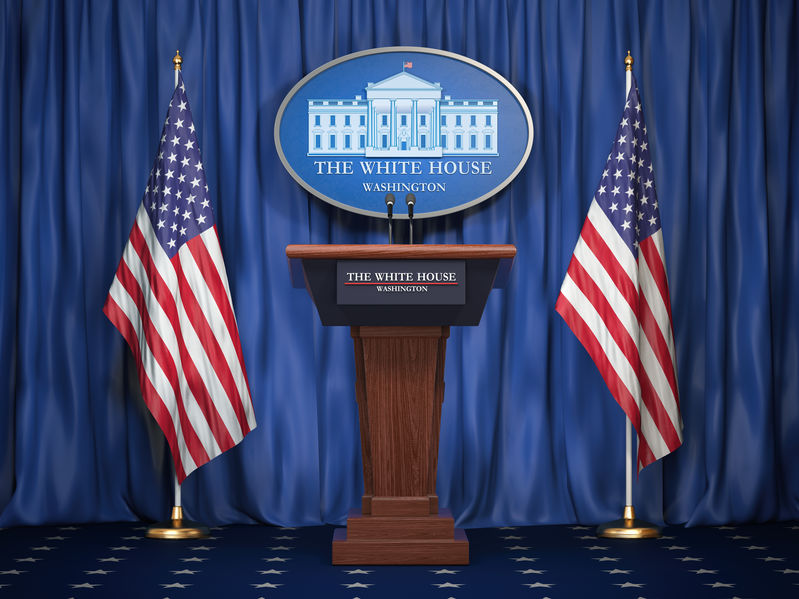Every four years, as the U.S. gears up for the presidential election, conversations about the economy and financial well-being come front and center. Candidates promise plans to improve household incomes, create jobs, lower taxes, and even reduce inflation. But how much power does the president actually wield over our finances? How directly can they impact your wallet?
The answer might surprise you: the president’s power is limited—especially when it comes to the core financial issues that affect most Americans.
Federal Laws That Affect Your Finances
Several areas of federal policy directly influence our financial lives, including:
- Income Tax
- Healthcare
- Social Security
- Retirement Plans (401k, IRA)
- Higher Education (Student Loans, Grants)
- Wages
- Tariffs and Trade Policies
These areas are central to many Americans’ financial well-being, and it’s common to wonder if a new president will raise or lower taxes, increase the federal minimum wage, introduce relief for student loan debt, or change tariffs that affect the prices of goods. However, it’s important to understand that the president does not have unilateral control over these matters. Here’s why.
The President’s Legislative Power – Limited but Influential
The president’s power comes primarily from the U.S. Constitution’s Article II, and it largely centers around enforcing laws passed by Congress, not creating them. Laws related to income tax, healthcare, Social Security, retirement plans, and other financial matters are all established by Congress, and any changes require new legislation or amendments to existing laws.
The president can certainly advocate for policy changes, but for any proposal to become law, it must first pass through both houses of Congress. The president then has the choice to sign the bill into law or veto it. However, a veto isn’t final; Congress can override it with a two-thirds majority vote in both the House and Senate.
In this way, the president can influence policy but lacks direct power over the legislation that shapes our finances.
Are you tired of feeling overwhelmed and stressed about money? 💸 Learn practical, lifelong strategies to confidently manage your finances and build a stable, secure future with our online course! 🎓✨ Take Control of Your Financial Future.

The President and the Economy
The economy influences nearly every aspect of Americans’ lives, from job opportunities to mortgage rates to the price of groceries. To understand the president’s impact here, let’s look at three main economic tools: fiscal policy, monetary policy, and tariffs and trade policy.
Fiscal Policy: Taxes and Spending
Fiscal policy refers to government actions on spending and taxation to influence the economy. When economic growth slows, fiscal policy may involve increased government spending, tax cuts, or both, injecting money into the economy to stimulate jobs and wages.
So, how much control does the president have over fiscal policy? Again, Congress holds the purse strings. The president can propose budget priorities and tax reforms, but for these to take effect, they need approval from Congress. The president’s influence over fiscal policy largely depends on their ability to work with Congress to pass these laws.
Monetary Policy: Controlling the Money Supply and Inflation
The Federal Reserve (or “the Fed”) is the U.S. central bank responsible for managing monetary policy, which includes controlling inflation. Inflation—when prices rise over time—affects everything from groceries to gas to home prices, and it’s one of the most visible impacts on your everyday finances. The Fed’s primary goals, set by Congress, are to maintain maximum employment and price stability.
Through monetary policy, the Federal Reserve adjusts the money supply and interest rates to respond to the economic climate. For instance, when inflation is high, the Fed may raise interest rates to curb spending and slow down rising prices. Conversely, in times of economic slowdown, the Fed might lower interest rates to encourage spending and investment.
So, what role does the president play in inflation control? While the president can nominate members to the Federal Reserve’s Board of Governors (including the chair), these appointments must be confirmed by the Senate. Importantly, the Federal Reserve operates independently in setting monetary policy. It doesn’t need approval from the president or Congress for its decisions, although it reports on its policies and outlook to Congress twice a year.
Tariffs and Trade Policy: Price of Goods and Economic Impact
Tariffs, which are taxes on imported goods, can directly affect the prices we pay on everyday items like electronics, clothing, and even food. By imposing tariffs, the government can make imported goods more expensive, encouraging consumers to buy domestically produced items. While tariffs can sometimes protect local industries, they can also lead to higher prices and potential trade conflicts that affect the broader economy.
The president has a notable amount of control over tariffs and trade policy, especially when it comes to imposing tariffs on specific imports or negotiating trade agreements with other countries. These decisions can impact the cost of goods and services, and, ultimately, consumers’ wallets. However, Congress has some oversight here, and long-term or significant trade policy changes typically require Congressional approval.
How Much Can a President Really Change?
While the president’s plans for the economy, inflation, and trade policies often make headlines, the reality is that enacting substantial changes to your financial landscape requires collaboration with Congress. Members of Congress play a significant role in the legislative process, from drafting bills to debating and passing laws that can ultimately influence wages, taxes, inflation, and social programs.
So, when considering a president’s impact on your finances, remember that the president’s role is part of a larger system of checks and balances. They can advocate, influence, and sign or veto laws—but ultimately, major financial changes require broad cooperation across the federal government.
Final Thoughts: Your Finances Are Shaped by Many Factors
While the president can play an important role in shaping the economy, many other forces impact your financial well-being. Economic policies are only one piece of a larger puzzle, influenced by global markets, consumer behavior, and your personal financial decisions.
As you navigate your own financial journey, staying informed about policies and understanding how these high-level decisions impact your everyday finances can help you make empowered choices. Remember, while presidents come and go, the strategies you put in place to manage your finances are often your most powerful tool for building financial security.
Sign up for my newsletter to stay up do date on all things Your Financial Wisdom!

